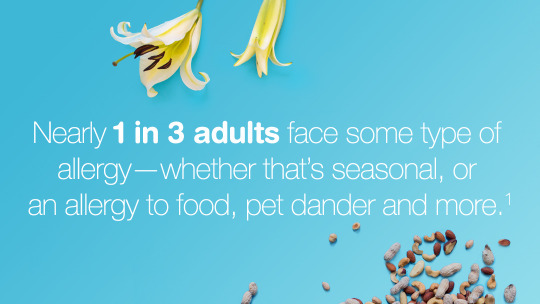
Who can get allergies?
Really, anyone can get allergies. Millions of Americans suffer from them. However, some factors like genetics and the environment affect whether or not someone develops allergies. You can inherit the likelihood that you will develop allergies.
Allergies often begin in childhood, but can develop or re-emerge later in life. But it’s still unknown why people develop allergies to food. They often have other allergic conditions, such as asthma, hay fever and eczema.
What are common allergens?
Many things can trigger allergies. The most common are:
- Pollen
- Dust mites
- Mold
- Animal dander
- Insect stings latex
- Certain food and medications.
According to WebMD, the following eight things cause about 90% of food allergy reactions:
- Milk (mostly in children)
- Eggs
- Peanuts
- Tree nuts, like walnuts, almonds, pine nuts, Brazil nuts and pecans
- Soy
- Wheat and other grains with gluten, including barley, rye and oats
- Fish (mostly in adults)
- Shellfish (mostly in adults)

What’s an allergic reaction?
Our bodies are each very different—which explains why some of us can handle things that are potentially dangerous to others, like peanuts. Allergic reactions happen when your immune system overreacts to something that comes in contact with your body. The immune system (your body’s defense against infection) mistakenly treats substances called allergens as a threat and tries to get rid of them by producing antibodies to fight the allergen. Allergens can be breathed into the lungs, swallowed or even injected.
What happens during an allergic reaction?
Your body’s reaction to an allergen causes the release of a body chemical called histamines, which cause the symptoms of an allergic reaction. Then, your system raises its defenses every time it detects the allergen, resulting in an allergic reaction, such as runny nose, itchy and watery eyes, sneezing, and swelling. Once a person has had an exposure or an allergic reaction, even a limited exposure to a very small amount of allergen can trigger a reaction.
What are symptoms of
an allergic reaction?
Reactions to allergens range from runny nose, itchy eyes, allergic
asthma and sneezing to hives and life-threatening anaphylaxis. If you think
someone has the symptoms of anaphylaxis – such as sudden onset of breathing
difficulties, lightheadedness, and feeling like they’re going to faint or lose
consciousness – get emergency help right away. If the person has emergency
allergy medicine on hand, help the person inject the medicine.
What’s the difference
between a food intolerance and a food allergy?
People with food intolerance may have symptoms such as diarrhea,
bloating and stomach cramps. This may be caused by difficulties digesting
certain substances, such as lactose. However, this is not the same as an allergic reaction.
Is there a cure for allergies?
While there is no specific cure to allergies, you can prevent exposure to your allergens and take allergy medication when needed. You can talk to your doctor about immunotherapy such as allergy shots, tablets or drops. They might not cure your allergies completely, but they can significantly reduce your allergic reactions.
Here’s how to prevent
allergic reactions:
- Avoid triggers such as foods and medicines that have caused an allergic reaction in the past. Ask detailed questions about ingredients when you are eating away from home. Carefully check ingredient labels.
- If you have a child who is allergic to certain foods, introduce 1 new food at a time in small amounts so you can recognize an allergic reaction.
- People who have had serious allergic reactions should wear a medical ID tag and carry emergency medicines according to their health care provider’s instructions.
Be well, stay well~
Pharmacist Andy
Andy Stergachis, Ph.D., R.Ph. is the Director of the Global Medicines Program at the University of Washington in Seattle and a subject expert on public health and pharmacy-related topics.
Sources:
1
Asthma and Allergy
Foundation of America and American College of
Allergy, Asthma, and Immunology.


